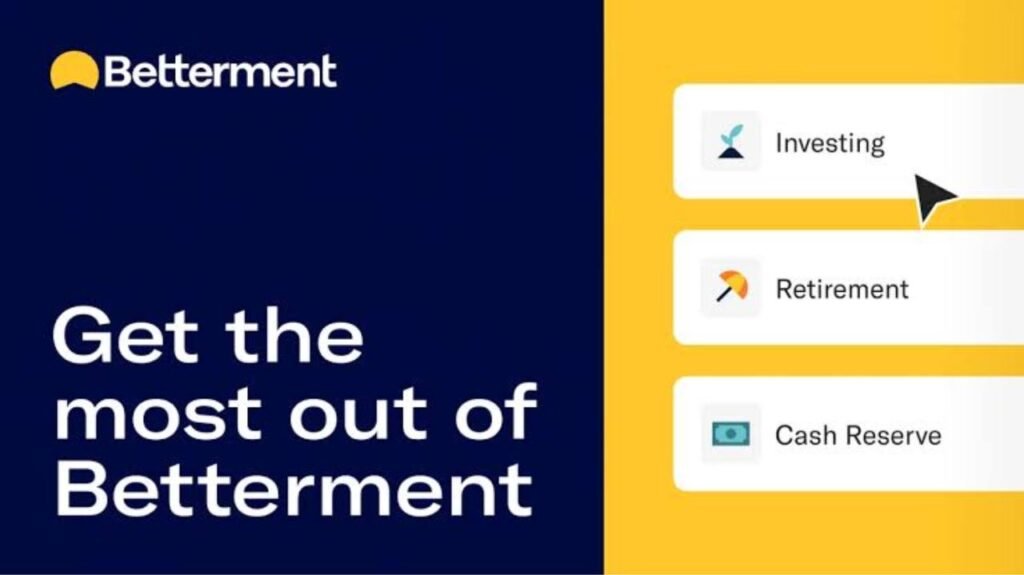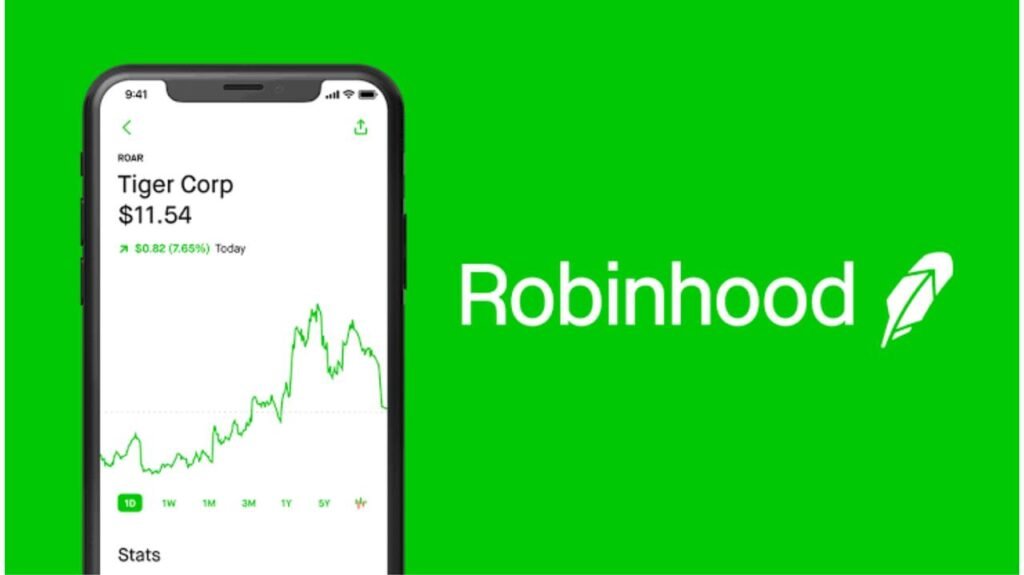Investing can seem daunting, but with the rise of user-friendly investment apps, it’s become more accessible than ever. These apps empower individuals to take control of their finances and build wealth through various investment options. Here are 10 of the best investment apps currently available:
Read also- Top 10 Best Business Books….click here
10. Vanguard:
- Known for: Low-cost index funds, ETFs, and mutual funds, and a focus on long-term investing.
- Pros: Industry leader in low-cost investing, wide range of investment options, strong reputation.
- Cons: Interface can be less user-friendly than some other apps, may require more self-directed investing.
- Known for:
- Low-cost index funds, ETFs, and mutual funds: Vanguard is renowned for its philosophy of keeping costs low for investors.
- Focus on long-term investing: Vanguard emphasizes a long-term investment approach, encouraging investors to stay invested through market fluctuations.
- Industry leader in low-cost investing: Vanguard has a strong reputation for offering some of the lowest expense ratios in the industry.
- Pros:
- Low-cost investing: Competitive expense ratios translate to significant cost savings over time.
- Wide range of investment options: Offers a diverse selection of index funds, ETFs, and mutual funds to suit various investment goals and risk tolerances.
- Strong reputation: A well-established and respected name in the investment industry, known for its commitment to investor interests.
- Cons:
- Interface can be less user-friendly than some other apps: The Vanguard app may have a steeper learning curve compared to some more user-friendly platforms.
- May require more self-directed investing: Vanguard’s approach often encourages investors to take a more active role in managing their investments.
Key Takeaways:
- Ideal for: Investors who prioritize low costs and long-term investing. Those comfortable with a more self-directed approach to investing may find Vanguard suitable.
- Not ideal for: Beginners seeking a highly automated and hands-off investing experience. Investors who prefer a more user-friendly and visually appealing interface may find other platforms more appealing.

9. E*TRADE:
- Known for: Powerful trading platform, extensive research tools, and a wide range of investment options.
- Pros: Advanced trading features, robust research and analysis tools, strong customer support.
- Cons: Can be complex for beginners, higher fees for some trading activities.
E*TRADE
- Known for:
- Powerful trading platform with advanced features
- Extensive research and analysis tools
- Wide range of investment options
- Pros:
- Advanced Trading Features: Ideal for active traders with features like advanced order types, charting tools, and real-time market data.
- Robust Research & Analysis: Offers in-depth research reports, news, analyst ratings, and screening tools to help inform investment decisions.
- Strong Customer Support: Provides various support channels, including phone, chat, and email.
- Cons:
- Can be Complex for Beginners: The platform’s advanced features may be overwhelming for novice investors.
- Higher Fees for Some Trading Activities: Some trading activities may incur higher fees compared to other platforms.
Key Features:
- Commission-free online US-listed stock, ETF, and options trades
- Powerful trading platform with advanced order types
- Extensive research and analysis tools
- Wide range of investment options
- Mobile trading app
- Bank and lending services
Who is E*TRADE best for?
- Active traders: Investors who frequently trade stocks, options, and other securities.
- Investors who value research: Those who rely heavily on research and analysis to make investment decisions.
- Experienced investors: Individuals comfortable with a more complex trading platform.

8. SoFi Invest:
- Known for: Commission-free stock and ETF trading, cryptocurrency trading, and lending options.
- Pros: User-friendly interface, competitive pricing, offers a range of financial products.
- Cons: Limited research tools compared to some competitors.
SoFi Invest offers a range of investment options and features designed to cater to various investor needs. Here’s a breakdown:
Key Features:
- Commission-Free Trading: Trade stocks, ETFs, and options without paying commissions.
- Cryptocurrency Trading: Invest in and trade various cryptocurrencies.
- IPO Access: Gain access to participate in initial public offerings (IPOs) of promising companies.
- Alternative Assets: Explore investments in alternative asset classes, such as real estate and private equity.
- Robo-Advisor: Utilize SoFi’s automated investment platform for personalized portfolio management.
- Social Trading: Connect with other investors and explore their investment strategies.
- Financial Planning: Access complimentary financial planning guidance from certified financial planners (CFPs).
Pros:
- User-Friendly Interface: The platform is easy to navigate and use, making it accessible to both beginner and experienced investors.
- Competitive Pricing: Commission-free trading and low fees make SoFi Invest cost-effective.
- Comprehensive Offerings: A wide range of investment options caters to diverse investment goals.
- Innovative Features: Access to IPOs and alternative assets provides unique investment opportunities.
- Excellent Customer Support: SoFi offers strong customer support through various channels.
Cons:
- Limited Research Tools: Compared to some competitors, SoFi Invest may have less extensive research and analysis tools.
- Potential for Overtrading: The ease of trading can sometimes lead to impulsive or excessive trading activity.
Overall:
SoFi Invest is a strong contender in the online investing space, offering a compelling combination of commission-free trading, innovative features, and a user-friendly platform. It’s particularly well-suited for investors seeking a diverse range of investment options, including access to IPOs and alternative assets. However, it’s essential to carefully consider your individual investment goals and risk tolerance before making any investment decisions.

7. Wealthfront:
- Known for: Automated portfolio management, tax-loss harvesting, and direct indexing (owning a portion of each company in an index fund).
- Pros: Sophisticated algorithms, competitive fees, focus on long-term growth.
- Cons: Limited control over investment choices, may not be suitable for all investors.
Wealthfront is an automated investment service that focuses on long-term growth for its clients. Here’s a breakdown of its key features:
Core Features:
- Automated Portfolio Management:
- Wealthfront uses sophisticated algorithms to build and manage your investment portfolio based on your risk tolerance, time horizon, and investment goals.
- This “hands-off” approach is ideal for investors who prefer a more passive investment strategy.
- Tax-Loss Harvesting:
- Wealthfront actively seeks to minimize your tax burden by selling losing investments and using the capital losses to offset capital gains in other parts of your portfolio.
- Direct Indexing:
- Wealthfront allows you to own a portion of each company within an index fund, like the S&P 500, instead of investing in the index fund itself. This can lead to potential tax advantages.
- Path to Modern Portfolio Theory (MPT):
- Wealthfront’s investment strategy aligns with Modern Portfolio Theory, which emphasizes diversification and risk management to achieve optimal returns.
Key Strengths:
- Sophisticated Technology: Wealthfront utilizes advanced algorithms and technology to optimize your portfolio and minimize taxes.
- Competitive Fees: Their fees are generally considered competitive within the robo-advisor space.
- Focus on Long-Term Growth: Wealthfront’s investment approach is designed for long-term investors with a focus on building wealth over time.
Potential Drawbacks:
- Limited Control: As an automated service, you have less control over individual investment selections.
- May Not Suit Active Traders: If you prefer a more active trading style, Wealthfront may not be the best fit for you.
Who is Wealthfront Suitable For?
- Long-term investors: Those with a long-term investment horizon and a focus on building wealth over time.
- Passive investors: Individuals who prefer a hands-off approach to investing and want their portfolio managed automatically.
- Tax-conscious investors: Those who want to minimize their tax burden and take advantage of tax-loss harvesting strategies.

6. Betterment:
- Known for: Automated portfolio management, tax-loss harvesting, and socially responsible investing options.
- Pros: Hands-off investing approach, low fees, tax-efficient strategies.
- Cons: Limited control over individual investments, may not be suitable for active traders.
Betterment is a popular robo-advisor known for its automated portfolio management and focus on long-term investing. Here’s a breakdown of its key features and considerations:
Key Features:
- Automated Portfolio Management:
- Betterment uses sophisticated algorithms to build and manage your investment portfolio based on your risk tolerance, time horizon, and financial goals.
- It automatically rebalances your portfolio to maintain your desired asset allocation.
- Tax-Loss Harvesting:
- This strategy aims to minimize your tax burden by automatically selling losing investments and replacing them with similar ones, generating tax deductions.
- Socially Responsible Investing (SRI) Options:
- Betterment offers SRI portfolios that align with your ethical and environmental values.
- Direct Indexing:
- This feature allows you to own a portion of each company within a specific index fund, potentially leading to higher returns and lower taxes.
- Low Fees:
- Betterment offers competitive management fees, making it an affordable option for many investors.
Pros:
- Hands-off Investing: Ideal for investors who prefer a passive approach to investing.
- Tax-Efficient Strategies: Helps minimize your tax burden through tax-loss harvesting and other strategies.
- Low Minimum Investment: You can start investing with as little as $10.
- User-Friendly Platform: The platform is easy to navigate and understand.
Cons:
- Limited Control: You have limited control over individual investments within your portfolio.
- May Not Be Suitable for Active Traders: If you prefer to actively manage your investments, Betterment may not be the best fit.
- Potential for Higher Fees: While fees are generally competitive, additional fees may apply for certain features or services.
Who is Betterment Best For?
- Beginners: Ideal for those new to investing who want a simple and automated approach.
- Long-Term Investors: Suitable for investors with a long-term investment horizon who are comfortable with a hands-off approach.
- Tax-Conscious Investors: Beneficial for those who want to minimize their tax burden.
- Socially Responsible Investors: Offers options for those who prioritize ethical and environmental investing.

5. Stash:
- Known for: Fractional shares, thematic investing (investing in specific themes like clean energy), and educational content.
- Pros: Beginner-friendly, engaging interface, focuses on long-term investing.
- Cons: Higher fees compared to some competitors, limited research tools.
Stash is an investment app that focuses on making investing more accessible, particularly for beginners. Here’s a breakdown of its key features:
Key Features:
- Fractional Shares: Allows you to buy small portions of stocks and ETFs, making it possible to invest in even expensive companies with just a few dollars.
- Thematic Investing: Offers the ability to invest in specific themes like clean energy, artificial intelligence, or women-led companies. This can be an engaging way to align your investments with your values.
- “Stash Boost”: A debit card that rewards purchases with fractional shares back, gamifying the investing process and encouraging consistent saving.
- Educational Content: Provides a range of educational resources, including articles, videos, and quizzes, to help you learn about investing and build financial literacy.
- Automated Investing: Offers “Smart Portfolios” that are automatically rebalanced based on your risk tolerance and investment goals.
- Custodial Accounts: Allows parents to open investment accounts for their children, fostering early financial education and wealth building.
Pros:
- Beginner-Friendly: The app is designed with a user-friendly interface and educational resources, making it easy for newcomers to navigate the world of investing.
- Engaging Interface: The gamified features and thematic investing options can make investing more fun and interesting.
- Focus on Long-Term Growth: Encourages long-term investing habits and provides tools to help you achieve your financial goals.
Cons:
- Higher Fees: Stash has higher fees compared to some other investment apps, which can impact your overall returns.
- Limited Research Tools: The app’s research and analysis tools may not be as comprehensive as those offered by some other platforms.
- Potential for Impulsive Trading: The gamified features could potentially encourage impulsive trading decisions, which can be risky.
Who is Stash Best For?
- Beginners: Stash is an excellent choice for those new to investing who are looking for a user-friendly and engaging platform.
- Those Interested in Thematic Investing: If you want to invest in specific themes or companies that align with your values, Stash offers a unique and engaging approach.
- Parents: The custodial accounts feature makes Stash a great option for parents who want to teach their children about investing.

4. Acorns:
- Known for: “Micro-investing” – rounding up purchases and investing the spare change.
- Pros: Easy to set up and use, ideal for beginners, automated investing.
- Cons: Limited investment options compared to some competitors, higher fees for some plans.
Acorns is an investment app that specializes in micro-investing, a method that aims to make investing easier and more accessible. Here’s a breakdown:
Key Features:
- “Round-Up” Investing: Acorns automatically rounds up your purchases to the nearest dollar and invests the spare change. For example, if you spend $3.75 on coffee, Acorns will round it up to $4 and invest the extra $0.25.
- Automated Investing: You can set up recurring investments, making it easy to consistently contribute to your portfolio.
- Diversified Portfolios: Acorns offers a range of portfolios designed to suit different risk tolerances and investment goals. These portfolios are typically diversified across stocks, bonds, and other asset classes.
- Early Investing: Acorns encourages early and consistent investing, which is crucial for long-term wealth building.
Pros:
- Easy to Use: The app is incredibly user-friendly and simple to set up.
- Affordable: Acorns offers a range of pricing tiers, making it suitable for various budgets.
- Automated Savings: Automating the investment process can help you stick to your savings goals.
- Beginner-Friendly: The app is designed to be accessible to investors of all levels, including those new to investing.
Cons:
- Limited Investment Options: Compared to some other investment platforms, Acorns offers a more limited selection of investment options.
- Fees: While Acorns offers a free version, higher tiers come with fees, which can impact your overall returns.
- May Not Be Suitable for Active Traders: Acorns is designed for long-term, hands-off investing. It may not be the best option for active traders who want more control over their investments.
Who is Acorns Best For?
- Beginners: Acorns is an excellent option for those new to investing who are looking for a simple and affordable way to start.
- Savers: If you want to automate your savings and invest small amounts consistently, Acorns can be a helpful tool.
- Those Seeking Diversification: Acorns offers diversified portfolios, which can help reduce investment risk.

3. Charles Schwab:
- Known for: Low fees, extensive research and educational resources, and a wide range of investment options.
- Pros: User-friendly platform, strong customer service, competitive pricing.
- Cons: Can have a steeper learning curve compared to some other apps.
Charles Schwab is a prominent American multinational financial services company that offers a wide range of products and services, including:
- Investing:
- Stocks, bonds, ETFs, mutual funds
- Options trading
- Retirement accounts (401(k), IRA)
- Advisory services
- Banking:
- Checking and savings accounts
- CDs and money market accounts
- Mortgages
- Credit cards
Key Features:
- Low Fees: Schwab is known for its competitive pricing, including commission-free stock and ETF trades.
- Extensive Research & Education: Offers a wealth of resources for investors, such as market research, educational materials, and financial planning tools.
- Strong Customer Service: Known for its excellent customer support channels, including phone, email, and in-person assistance at branch locations.
- Robust Platform: Provides a user-friendly platform for trading and managing investments, with advanced features for active traders.
Pros:
- Competitive pricing
- Extensive research and educational resources
- Strong customer service
- Wide range of investment options
Cons:
- Can have a steeper learning curve compared to some other platforms
- May not be the best choice for very infrequent traders
Overall:
Charles Schwab is a well-respected and reputable financial services company that caters to a wide range of investors, from beginners to experienced traders. Its combination of low fees, robust platform, and excellent customer service makes it a strong contender in the investment landscape.

2. Fidelity Investments:
- Known for: Comprehensive platform with a wide range of investment options, including stocks, bonds, ETFs, mutual funds, and retirement accounts.
- Pros: Robust research tools, excellent customer support, strong security features.
- Cons: Can be overwhelming for beginners, higher account minimums for some accounts.
Fidelity Investments is a prominent American multinational financial services corporation. Here’s a breakdown of key details:
Core Offerings:
- Investment Management:
- Mutual Funds: A wide array of mutual funds, including index funds, actively managed funds, and sector-specific funds. Known for its low-cost index funds.
- ETFs: A growing selection of exchange-traded funds.
- Retirement Planning: 401(k) plans, IRAs (Traditional, Roth, SEP, SIMPLE), and other retirement savings accounts.
- Brokerage Services: Online and mobile trading platforms for stocks, bonds, options, and other securities.
- Wealth Management: Personalized investment advice and portfolio management for high-net-worth individuals.
- Asset Custody: Provides custody services for institutional investors.
Key Strengths:
- Wide Range of Products: Offers a comprehensive suite of financial products and services to cater to diverse investor needs.
- Strong Brand Reputation: A well-established and trusted name in the financial industry with a long history.
- Low-Cost Options: Known for its competitive pricing, particularly in the area of index funds.
- Robust Technology: Offers user-friendly online and mobile platforms, along with robust research and trading tools.
- Excellent Customer Service: Generally regarded as having high-quality customer support.
Things to Consider:
- Account Minimums: Some accounts may have minimum balance requirements.
- Complexity: The platform can be complex for some beginners due to the wide range of options.
Overall:
Fidelity Investments is a well-regarded financial services company that can be a valuable resource for investors of all levels. Their strengths lie in their diverse product offerings, competitive pricing, and strong customer service. However, it’s crucial to research and understand their fees and services before making any investment decisions.

1. Robinhood:
- Known for: Commission-free stock and ETF trading, cryptocurrency trading, and fractional shares.
- Pros: Intuitive interface, easy to use, gamified investing features.
- Cons: Limited research tools, potential for impulsive trading.
Robinhood is a popular mobile-first investment platform that has revolutionized the way people trade stocks and other assets. Here’s a breakdown of key aspects:
Core Features:
- Commission-Free Trading: Robinhood gained prominence by offering commission-free trading of stocks, ETFs, and options. This significantly lowered the barrier to entry for many investors, especially those with smaller portfolios.
- Fractional Shares: Allows users to buy small portions of expensive stocks, making investing in companies like Amazon or Google more accessible to those with limited funds.
- Cryptocurrency Trading: Robinhood offers trading in various cryptocurrencies, including Bitcoin, Ethereum, and Dogecoin.
- User-Friendly Interface: The app is known for its intuitive and easy-to-use design, making it appealing to both novice and experienced investors.
- Gamification: Some features, such as the ability to gift stocks and the gamified interface, have drawn criticism for potentially encouraging impulsive trading behavior, particularly among younger investors.
Pros:
- Accessibility: Low barriers to entry, making investing more accessible to a wider range of people.
- Ease of Use: Simple and intuitive interface, making it easy to navigate and execute trades.
- Commission-Free Trading: Eliminates trading costs, allowing investors to maximize their returns.
- Fractional Shares: Provides access to high-priced stocks with smaller investments.
Cons:
- Limited Research Tools: Compared to some traditional brokerages, Robinhood offers fewer in-depth research and analysis tools.
- Potential for Impulsive Trading: The gamified interface and ease of use can sometimes encourage impulsive trading decisions.
- Customer Support: Robinhood has faced criticism for its customer support, with some users reporting difficulties in reaching representatives.
- Regulatory Scrutiny: The company has faced increased regulatory scrutiny and legal challenges related to its trading practices and customer protection measures.

Choosing the Best Investment App for You
The best investment app for you will depend on your individual needs and investment goals. Consider factors such as:
- Your investment experience: Are you a beginner or an experienced investor?
- Your investment goals: Are you saving for retirement, buying a home, or building wealth for other purposes?
- Your risk tolerance: How much risk are you comfortable taking with your investments?
- Your preferred investment style: Do you prefer hands-on or hands-off investing?
- Fees and costs: Compare fees associated with each app, including trading fees, account fees, and management fees.
Important Considerations:
- Research and due diligence: Before investing with any app, thoroughly research the platform and understand the risks involved.
- Start small: Begin with a small initial investment and gradually increase your investment amount as you gain confidence.
- Diversify your portfolio: Don’t put all your eggs in one basket. Diversify your investments across different asset classes to reduce risk.
- Stay informed: Keep up-to-date on market trends and make adjustments to your investment strategy as needed.
- Seek professional advice: If you have any questions or concerns, consult with a qualified financial advisor.
Disclaimer: This information is for educational purposes only and should not be considered financial advice. Investing involves risks, and you could lose money.
FAQs
1. What are the best investment apps for beginners?
The best investment apps for beginners often include features like low fees, educational resources, and user-friendly interfaces. Some top picks for beginners are:
Robinhood: Known for its simple design and commission-free trading.
Acorns: Ideal for those looking to start investing with spare change through automatic round-ups.
Stash: Offers easy-to-understand investment options and personalized guidance.
These apps make it easy for novices to start building their portfolios with minimal experience.
2. How do investment apps make money if they don’t charge fees?
Many investment apps make money in several ways, even if they don’t charge commission fees:
Payment for Order Flow: Some apps sell their users’ trade data to market makers for a small fee.
Premium Services: Offering premium memberships with additional features, such as personalized advice or advanced tools.
Interest on Cash Balances: Apps may earn interest on uninvested funds in customer accounts.
While they don’t charge users directly, these alternative revenue models keep the apps profitable.
3. Can investment apps help with retirement savings?
Yes! Many investment apps offer retirement-focused accounts, such as IRAs (Individual Retirement Accounts), to help users save for retirement. Some of the top apps for retirement investing include:
Betterment: Offers tax-advantaged retirement accounts and automated portfolio management.
Fidelity: Provides a range of retirement accounts with no minimum investment requirements.
Wealthfront: Also offers retirement accounts and automated financial planning.
These apps allow users to invest in diversified portfolios for long-term growth, making it easier to plan for retirement.
4. Are investment apps safe for managing my money?
Most reputable investment apps are regulated by government bodies, such as the SEC (Securities and Exchange Commission), and use encryption to keep your data secure. However, the safety of your investments depends on the app and the financial institutions backing it. Look for the following safety features when choosing an app:
FDIC or SIPC insurance: Protects your funds in case of fraud or failure.
Two-factor authentication: Adds an extra layer of security for your account.
Transparency and regulation: Ensures that the app complies with financial regulations.
It’s essential to choose an app with strong security protocols and a good reputation.
5. What types of investments can I make through investment apps?
Investment apps typically offer a variety of investment options, such as:
Stocks and ETFs: Popular for long-term growth and diversification.
Bonds: For those seeking more stable returns.
Cryptocurrency: Many apps, such as Robinhood and eToro, offer cryptocurrency trading.
Robo-advisors: Automated portfolio management that invests in a mix of stocks, bonds, and other assets based on your risk tolerance.
These apps cater to a wide range of investment strategies, from hands-off robo-advisors to active stock trading.

